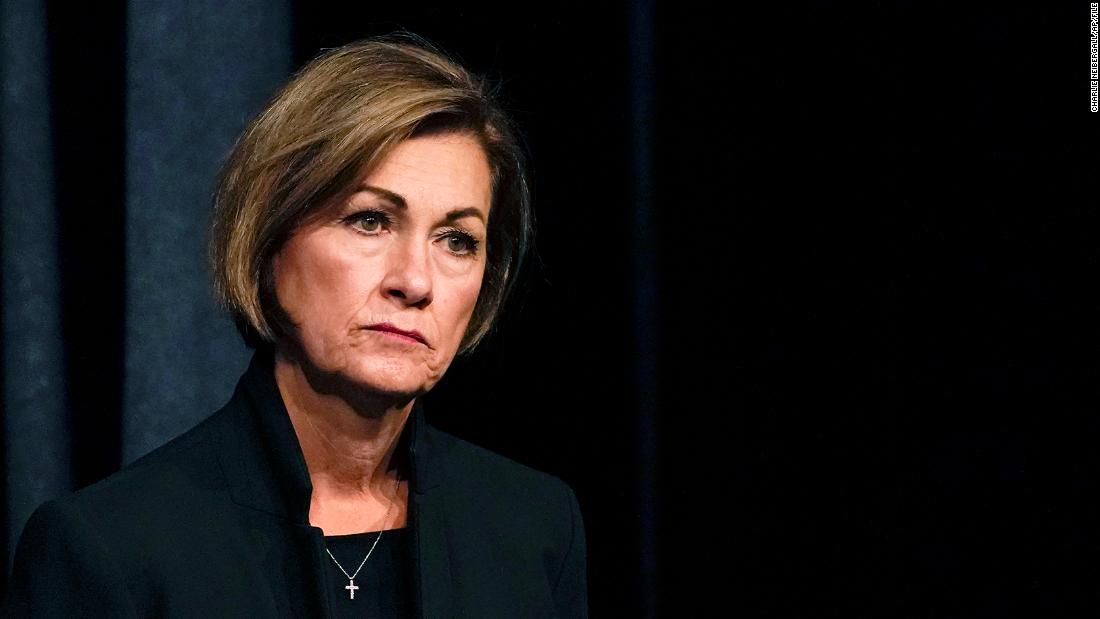The legislation, which was passed in the two chambers of the state legislature controlled by Republicans last month, will reduce the number of early voting days from 29 to 20 days. It will also close polling stations an hour earlier on Election Day (8 pm instead of 9 pm).
The bill additionally imposes new restrictions on absentee voting, including prohibiting officials from submitting requests without a voter requesting it first and requiring that the ballots be received by the county before the election closes on election day.
“It is our duty and responsibility to protect the integrity of all elections. This legislation strengthens uniformity by providing Iowa election officials with consistent parameters for election day, absent voting, database maintenance, as well as a clear appeals process. for local county auditors, “Reynolds said in a statement Monday.
“All of these additional steps promote more transparency and accountability, giving Iowa citizens even more confidence to vote.”
The new law drew an immediate reaction from state Democrats, including a tweet from the Iowa Democratic party stating: “We deserve better”.
The law is part of a larger effort by Republican lawmakers across the country – including the battle states of Georgia and Arizona – to reverse access to voting after the 2020 elections. The November election saw record numbers of early voters and by mail, sparking unfounded allegations of electoral fraud by then President Donald Trump and some of his Republican colleagues and ultimately leading to the deadly uprising on January 6.
